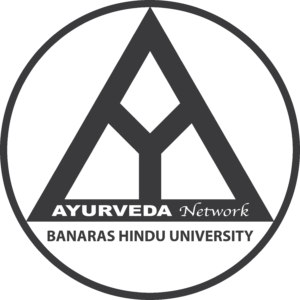Ayurveda Network
Established under PMMMNMTT scheme of the Ministry of Education, and supported by the Ministry of Ayush under “Ayurgyan” Central Sector Scheme for “Web-based (on-line) educational programs” being coordinated by Rashtriya Ayurveda Vidyapeeth, New Delhi
Background
Ayurveda, the medical system that originated in Indian subcontinent, has provided healthcare to the region for centuries together. Ayurveda –a holistic health system – was never so relevant as today due to the fact that most prevalent diseases all over the world have their cause in unhealthy ways of living, and may have their solution in the principles and practices of Ayurveda.
The education and practice of Ayurveda, however, need to be re-energized, renewed and reformed in order to suit the needs of the contemporary world. A center of medical education which can illuminate the path and guide the progress of Ayurveda, both within and without the national boundaries, is required to take the lead.
Working on Pandit Madan Mohan Malviya’s vision of integration of Ayurveda with contemporary and oriental knowledge, the Banaras Hindu University has guided the Ayurvedic education in the country by producing excellent teachers, doctors and administrators serving most of the centers all over India; writing books on virtually every subject; providing research leads for diseases and drugs; and by provision of healthcare directly to the vast population of Uttar Pradesh and neighboring States.
However, we have the following issues in Ayurveda that need urgent attention.
1. Ayurveda is an ancient medical system which has to be taught by supplementing with contemporary knowledge.
2. Ayurveda is an essentially service-oriented science. The present curriculum of Ayurveda has failed in translating knowledge into skills. It needs to be transformed from the present ‘theory-based’ one to ‘application-oriented’ one.
3. The science of Ayurveda has evolved through experiences and observations of thousands of years. This needs to be demonstrated in actual practice. The present curriculum has failed to address this problem.
4. The present curriculum has not given adequate space to incorporate newer health challenges, drugs, pharmaceutical advances, and diagnostic and therapeutic modalities.
A huge amount of new information is being added every day to the existing body of medical knowledge. It requires enormous effort to convert this information into useful knowledge keeping in view the sociocultural and economic conditions of a country. Equally important is to disseminate this knowledge in a manner that it can be easily accessed, understood and implemented for teaching, research and healthcare. In the recent past, a lot of work has been done in the field of Ayurveda by individuals as well as government agencies, and efforts have been made to organize this knowledge in various forms. AYUSH research portal, TKDL and DHARA are few such efforts. But these efforts are not adequate to incorporate all developments made in this field. Therefore, there is a need to organize the resources so that it can be available to all professionals for further advancement of Ayurveda.
In this age, when the speed of information exchange has reduced the earth into a global village; a global association of academicians who can build the subject content and make curriculum would be a big step towards building a renewed healthcare system of Ayurveda. It can be done by involving the academicians and experts working on shared virtual environment as well as by actual meetings held on specific themes.
 Ayurveda Network
Ayurveda Network
This is a network of experts established under Pandit Madan Mohan Malaviya National Mission on Teachers and Teaching of the Ministry of Huma Resource Development, Government of India. This has been done under Subject-Based Network component of PMMMNMTT program.
Since February 2022, this initiative is being supported by the Ministry of Ayush under “Ayurgyan” Central Sector Scheme for “Web-based (on-line) educational programs” being coordinated by Rashtriya Ayurveda Vidyapeeth, New Delhi.
Vision
To develop a network of Ayurveda by integrating the domain knowledge through data mining, networking, research and sharing for global advantage.
Mission
1. To strengthen the resource base for the teachers of Ayurveda.
2. To build the pool of teachers who engage on the domain knowledge in Ayurvedic education.
Objectives
1. To develop the curriculum to meet the healthcare needs of the country.
2. To develop e-content and e-resources for Ayurvedic teachers and professionals.
3. To develop e-content for integration of Ayurveda, oriental and contemporary sciences.
4. To assemble support material in electronic form for onward use among Ayurvedic professionals.
Organization
Academicians/researchers from prestigious academic institutions, research organizations, industry etc. across the country are being engaged in the project.
Experts
- Around 50 experts from specific specialties of Ayurveda and relevant disciplines have been inducted
- The experts have been shortlisted based on their contribution to the subject such as teaching experience, research publications, published books, being conversant with information technology tools etc.
Outcomes
- A web-based platform has been developed (https://ayurvedanetworkbhu.com/)
- e-content that is relevant for students, teachers, and professionals of Ayurveda and of related fields of life sciences is being developed and is being made available in an Open Access format
- e-content at present is in the form of articles, slide presentations, video lectures, audio lectures, and other relevant documents
- We have organized several symposia, workshops, invited lectures, CMEs, Expert Meetings so that teachers and students are benefited.
- We have published a few review and research papers in reputed scholarly journals.
- ‘Clinical Experiences of an Ayurveda Practitioner’: An e-book by Prof. Muralidhara Sharma has been published which can be downloaded at New e-book
Functions
- The content is being developed with a focus on the basic domain knowledge, advanced domain knowledge from an integrative point of view, and, the prospects for future research in the field
- The practical application of the domain knowledge is being given maximum emphasis.
New Goals under Ayurgyan Scheme (2022-2024)
- e-Book Publication
- Hosting Audio-Video Lectures
- Hosting Articles/ Lecture Notes
- Conducting Webinars
- Hosting Discussion Forums

